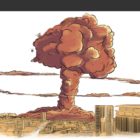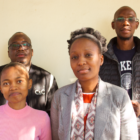Data Journalism
Data Journalism Top 10: Snowless Winter Olympics, Food’s Carbon Footprint, Illegal Mining
|
Our weekly NodeXL curation of the most popular data journalism stories on Twitter features several climate change-related stories: snowless Winter Olympics, a look at the carbon footprint of popular food, how the world’s largest beef producer is fueling deforestation in the Amazon, and a Climate Promise Detector project reviewing the stance of presidential candidates on climate change in Costa Rica.








